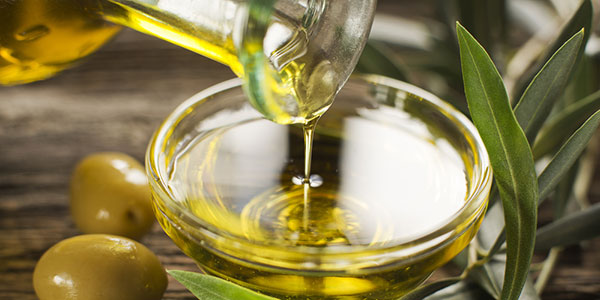
Diabetes is a chronic disease that affects nearly 10 percent of Americans, with that number expected to grow in the future. The condition cannot only be costly to the wallet, but taxing on health and should not be taken lightly.
Essentially, diabetes is when the body cannot efficiently produce energy from food sources. Insulin, a hormone responsible for making energy from sugar (mostly from carbohydrate sources) becomes insufficient in diabetes.
The conversion of sugar to energy is unable to be carried out and blood sugars start to rise, a phenomenon known as hyperglycemia, and can harm multiple organ systems if left uncontrolled. But when it comes to controlling blood sugars, individuals generally turn to carbohydrate intake for fluctuating levels.
So how may extra virgin olive oil, a fat source, reduce after-meal blood sugars? Let's take a look on what olive oil is, along with its beneficial health properties.
What is Olive Oil?
Running to the store for olive oil might be a little more overwhelming than envisioned, as there are numerous types - including pure olive oil, light olive oil, and virgin olive oil, and extra virgin olive oil (EVOO). Although each can be used interchangeably, EVOO is the highest quality offered.
Extra virgin olive oil and virgin olive oil are unrefined, meaning they have not been treated with chemicals or undergone heat manipulation. When it comes to distinguishing between the two, the finger is pointed to the oleic acid content. Though oleic acid can be consumed at a healthy and safe level, too much can be harmful. EVOO, compared to the others, has the least amount of oleic acid content (with no more than one percent) while offering the richest flavor.
Extra Virgin Olive Oil Benefits on Blood Glucose
Utilizing olive oil into cooking has become a popular practice, especially in the Mediterranean region. Its intake is a key player in the Mediterranean diet (primarily a plant-based diet) filled with whole grains, fruits and vegetables, legumes and nuts, olive oil, and fresh herbs and spices.
When comparing a Mediterranean diet to a Westernized diet, there are several health benefits that arise, particularly pertaining to blood glucose control and heart disease. Although the effects of a Mediterranean diet have been witnessed, the mechanism is vague.
What Does the Research Show?
To get a better grasp on these health phenomena, researchers tested the effect of EVOO on post-prandial glycemic (after-meal) levels and lipid profiles. Twenty-five healthy individuals participated in two studies: One where all individuals consumed a Mediterranean-style diet but not all received an additional 10 grams of olive oil. The second study (30 days later) included the same subjects as the first study.
Subjects received an identical lunch composition, but were further randomly chosen to consume either 10 grams of olive oil or 10 grams of corn oil added to their meal. The first study demonstrated lowered blood glucose and low-density lipoprotein (also known as LDL or "bad" cholesterol) in those taking EVOO compared to those without.
The second study further found EVOO improved glycemic and lipid profile with the intake of EVOO compared to corn oil. Although the results were hoped to be expected, the study further identified how EVOO plays a key role in the reduction of blood glucose and LDL.
How to Use EVOO Effectively
So when it actually comes to implementing olive oil into the diet, the means to do so is relatively simple: drizzle atop of salads, incorporate in dressings, replace traditional frying oils, and sauté with veggies. However, it is important to note adding olive oil onto poor food choices does not have the same effect. Rather, the oil should be implemented in a well-balanced meal and complimented with a healthy lifestyle.
Reference:
Viola F, Loffredo L, Pignatelli P, et al. Extra virgin olive oil use is associated with improved post-prandial blood glucose and LDL cholsterol in healthy subjects. Nutrition & Diabetes.







